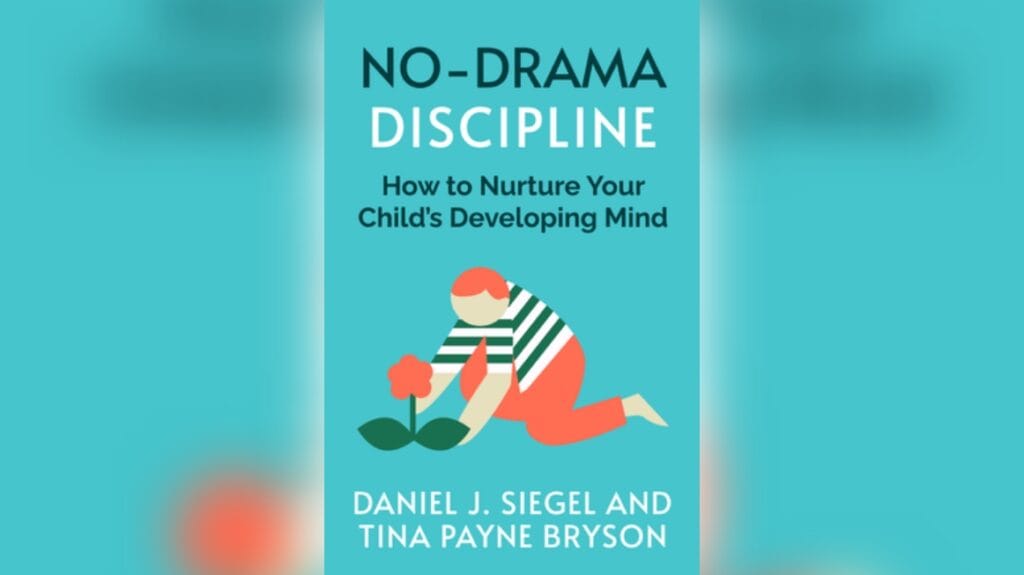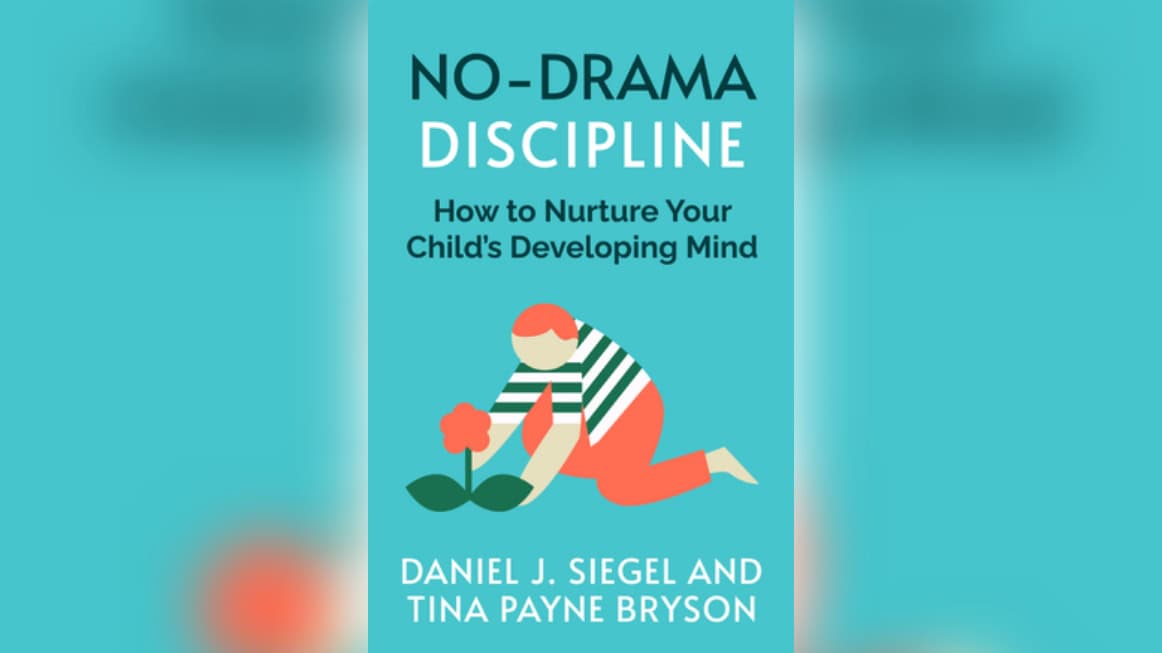In a world where parenting advice is abundant, « No-Drama Discipline » by Daniel J. Siegel and Tina Payne Bryson stands out for its practical and compassionate approach. This book offers a refreshing take on discipline, emphasizing connection over correction, making it a must-read for parents seeking to foster a positive relationship with their children. The authors recognize that every child is different, and that an approach focused solely on punishment will not work for every family. Their method teaches parents to understand their child’s perspective and discipline them with empathy, care, and respect.
Understanding No-Drama Discipline
« No-Drama Discipline » by Daniel J. Siegel and Tina Payne Bryson is an insightful and practical guide for parents seeking to discipline their children effectively without causing emotional distress. The authors, both experts in the field of child development and neuroscience, offer a compassionate approach to discipline that focuses on teaching and nurturing rather than punishment and control. They provide a clear framework grounded in brain science, helping parents interpret their child’s behaviors and respond to them constructively. While some parenting books give vague, inconsistent advice, Siegel and Bryson present disciplining strategies that are thoughtful, structured and will lead to healthier parent-child relationships.

The book is well-structured, combining scientific research with real-life examples to illustrate key concepts. Siegel and Bryson emphasize the importance of understanding a child’s brain development and using that knowledge to respond to misbehavior in a way that promotes learning and growth. Their approach is grounded in empathy and connection, aiming to build stronger parent-child relationships while guiding children towards better behavior. They explain how certain disciplinary tactics like yelling or threatening can damage a child’s developing brain. Instead, they recommend calm, respectful communication to understand the reason for misbehavior and help the child improve.
Key Principles of No-Drama Discipline
Chapter 1: ReTHINKing Discipline
Key Points:
- Discipline should be about teaching, not punishment. Understanding the difference between punishment and discipline is crucial for effective parenting.
- Misbehavior is an opportunity to teach important life skills like problem-solving, emotional regulation, and responsible decision making. A calm, focused discussion can help children learn from their mistakes.
Example Technique: Instead of yelling or punishing, use a calm voice and explain why the behavior is problematic and what the child can do differently next time. Ask open-ended questions to ensure they understand the lesson.
Chapter 2: Your Brain on Discipline
Key Points:
- Children’s brains are still developing important self-control and reasoning skills through childhood and adolescence, affecting their behavior.
- The concept of the « upstairs » and « downstairs » brain illustrates why young children struggle to control emotions in challenging situations.
- Effective discipline involves helping children strengthen their upstairs brain and move from reactive emotional responses to more thoughtful, reasoned reactions through patient guidance.
Example Technique: When a child is upset, help them calm down with a focused activity like reading together. Then discuss the issue once their upstairs brain has more influence over their reactions and behaviors.
Chapter 3: From Tantrum to Tranquility
Key Points:
- Connection is the first step in effective discipline. Building trust and understanding prepares children to receive guidance.
- Connecting with a child before correcting their behavior helps them feel understood and reassured, making them more open to listening and learning from the experience.
- Empathy, active listening, and validation are powerful tools in de-escalating conflicts and helping children regulate their emotions.
Example Technique: Get down to the child’s eye level, make eye contact, acknowledge their feelings with empathy using their words, and offer comfort with a hug before addressing the misbehavior. This models calm conflict resolution.
Chapter 4: No-Drama Connection
Key Points:
- Connection builds trust and strengthens the important bond between parent and child. A supportive relationship provides security for children to explore with confidence.
- Using « time-ins » instead of punitive « time-outs » fosters closeness through quality one-on-one time and helps children learn to identify, understand and handle difficult emotions appropriately.
Example Technique: During a « time-in, » sit together in a quiet spot with full attention on the child. Help them share what they’re feeling, then calmly discuss alternative actions and how to apply the lesson moving forward.
Chapter 5: 1-2-3 Discipline
Key Points:
- The three steps of effective discipline—Connection, Naming, and Engagement—provide a simple framework for any parenting challenge.
- Connection through eye contact and empathy helps de-escalate big emotions. Naming the feeling helps children understand themselves. Engagement redirects energy to learning through a focused activity.
Example Technique: When a child is upset about not being allowed to watch more TV, connect by listening first before redirecting. Then help them name how they feel (« frustrated ») and engage with an alternative playtime together.
Chapter 6: Addressing Common Discipline Challenges
Key Points:
- Different developmental stages require tailoring discipline techniques accordingly. What works for a toddler’s tantrum may not for a teen’s defiance.
- Practical, empathetic advice addresses typical challenges like aggression, defiance, screen addiction, and sibling conflicts.
Example Technique: For a school-aged child misbehaving on the playground, investigate what happened with empathy and problem-solve better options, like walking away when angry next time. Clear consequences maintain trust.
Benefits of “No-Drama Discipline”
Promotes Emotional Intelligence
By teaching children to understand and manage their emotions through calm discussion, identification of feelings, and problem-solving, No-Drama Discipline fosters strong emotional intelligence. This crucial life skill supports healthy development and sets kids up for success in school, careers, and relationships both now and in the future.
Strengthens Parent-Child Bond
The mutual trust and close connection emphasized in No-Drama Discipline enhances the parent-child relationship. When children feel truly understood, respected and supported, cooperation comes naturally. Strong bonds formed in childhood provide kids with security as they learn and grow.
Encourages Long-Term Behavioral Change
While many disciplinary techniques focus on immediate compliance, No-Drama Discipline supports intrinsic motivation and responsibility over the long run. By guiding children to identify reasons for behaviors and healthier alternatives, it nurtures problem-solving skills and self-discipline essential for independence and adaptation at every stage of life. Thoughtful discussions teach valuable lessons beyond any single event.
Conclusion
In conclusion, « No-Drama Discipline » offers a compassionate and evidence-based approach to parenting that prioritizes empathy, emotional regulation, and the all-important parent-child bond above short-term obedience. By shifting the focus from punishment to nurturing understanding and problem-solving skills, parents can not only guide better behaviors but strengthen trust and communication with their children at each stage. The techniques discussed set kids up for success wherever their paths may lead by fostering self-awareness and responsibility from an early age.
Ready to transform your parenting for the better? Siegel and Bryson’s insightful, practical books lays the foundation for more positive family dynamics. For those seeking to discipline effectively while nurturing healthy emotional development, « No-Drama Discipline » is a must-read. Its lessons empower parents as their child’s most influential teacher and role model. Be sure to grab your copy today to start strengthening parent-child relationships through gentle, empathetic guidance tailored to each family’s unique needs. For more book reviews and parenting strategies, subscribe to our blog for regularly updated resources to support your whole family’s growth and happiness.
For more insights on child development, visit The Center for Parenting Education and Child Mind Institute.





























Add comment